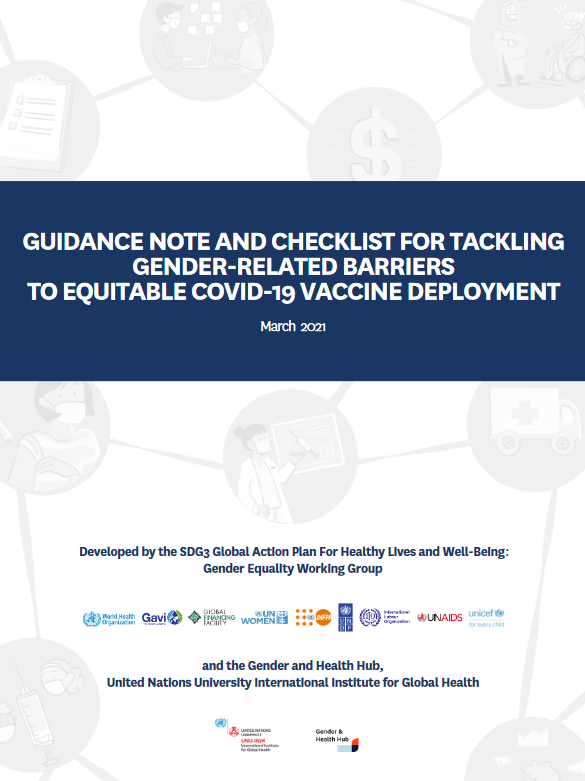The Gender Equality Working group of the SDG3 Global Action Plan on Healthy Living and Well-being, along with the Gender and Health Hub at UNU-IIGH presents a guidance note and checklist of key actions for countries to prioritise that align with the core domains of WHO and UNICEF’s guidance for COVID-19 national deployment and vaccination plans. These include steps in the planning, delivery, and monitoring of vaccine deployment, such as:
- the meaningful involvement of gender experts and representatives of community in planning, decision-making, identifying barriers, communicating information, building trust, and vaccinating the population.
- vaccine delivery and logistic planning based on context-based knowledge of women, men and gender-diverse groups’ health-seeking preferences, such as community or workplace-based delivery, addressing travel or mobility challenges to access vaccination sites, and employing women vaccinators to ensure social acceptability in communities with gender segregation, and ensuring women vaccinators are safe, well remunerated, and receive adequate training.
- evidence-based messaging using culturally-sensitive and, inclusive mediums to share evidence, dispel myths, misinformation and uncertainty, to support vaccination uptake, such as by co-creating tailored messaging with stakeholders, and leveraging diverse communication channels and networks to reach different sub-groups of women, men and gender-diverse people.
- data systems that collect, report and use sex-disaggregated vaccine outcomes in decision-making such as in vaccine regulatory approval processes, vaccine safety surveillance and outreach monitoring….
SDG3 Global Action Plan For Healthy Lives and Well-Being: Gender Equality Working Group, & Gender and Health Hub. (2021). Guidance note and checklist for tackling gender-related barriers to equitable COVID-19 vaccine deployment.






